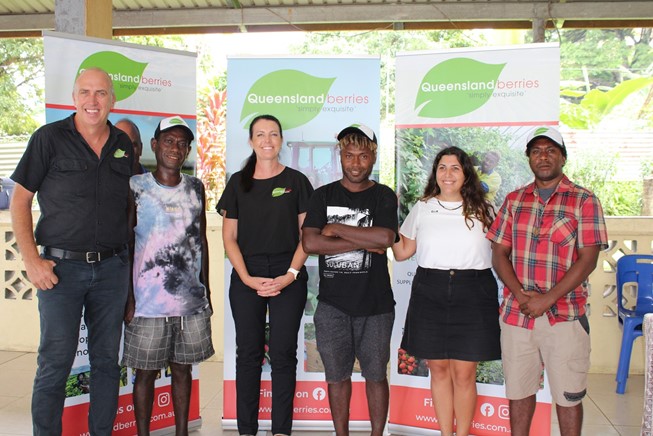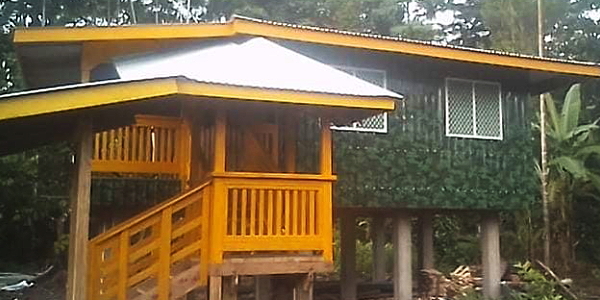For local workers such as Andrew Pandavisu, the Pacific Australia Labour Mobility (PALM) Scheme has offered a life-line for his family and community.
The 28-year-old is a bread-winner and source of support for his kinsmen. Mr Pandavisu is preparing to leave the Solomon Islands this February for work, refreshed and rejuvenated after completing his two years stint with the Queensland Berries company late last year.
Like so many Solomon Islanders under the scheme, Mr. Pandavisu has so much to be proud of what he has achieved during his time in Australia.
“Apart from the money I send home to my family, I was able to also build a permanent home at my village and also bought a bus which is now serving my community on West Guadalcanal,” he exclaimed.
He has also assisted his community with money for work on a church building in his community.

Mr. Pandavisu graduated from Don Bosco Technical School in carpentry and signed up to the recruitment drive back in 2019. He was selected and sent to Australia under a two-year contract in November 2020.
He is optimistic about the future and is thankful that such a scheme is available to assist Solomon Islanders who cannot find work in the country.
“Both my parents have been sick and could not able to provide for us, but through the work I have done through the scheme, I was able to provide shelter, food and income for my family,” he said.
Silas Enoch, from Ranonga in the Western Province also shared similar sentiments. Before travelling to Australia, he was a Bus driver in Honiara. After his bus broke down, he sold betel-nuts to earn a living. From his earnings in Australia, he was able to buy a piece of land at Tenaru which he intends to develop when he returns to Australia in February.
The duo are among a number of Solomon Island workers who are here on holidays after their contract with Queensland Berries lapsed late last year.
They were fortunate to catch up with the management team of Queensland berries who were in the Solomon Islands this month conducting interviews and fitness tests for potential workers to join their farm.
Managing Director of Queensland Berries, Melissa Mcgrudy spoke highly of the Solomon Islanders who were employed in her company.
She said Solomon Islanders are very loyal, hardworking and it was a pleasure to have them work for the company.
“Our first seasonal workers came two and half years ago from the Solomon Islands, and we have had a great experience, they were all men and we have a number of them still working for us today,” She added.
She said most of them are now in senior roles as supervisors and team leaders. The company plans to recruit 30 more workers this year from the Solomon Islands and for the first-time female workers will be included. The company recruits between 300-400 workers during its peak season.
Mrs.Mcgrudy said the PALM scheme has been a life-saver for her company as they now have a solid workforce who are permanent, skilled and have given a commitment of between one to four years, a commitment she described as beneficial for the company and workers that come over.
For Pandavisu and Enoch achieving their goals is not that easy. They have to make a lot of sacrifice to be able to meet the needs of their families and communities back home.
Mr Enoch said keeping to the goals they set out to achieve is key, following orders and learning new skills from the different jobs offered on the farm is another way of building trust and confidence between workers and their employers.
“We believe we have impressed the company’s management; hence they have given us another opportunity to work with them again,” Mr. Enoch said.
Both describe work on the farm as tough but rewarding. They encouraged would be workers under the scheme to concentrate on work and not be easily influenced by things such as alcohol and unnecessary spending on things that would not benefit them.
—MFAET









